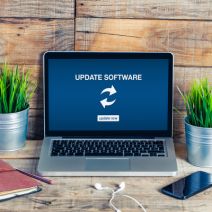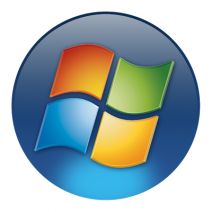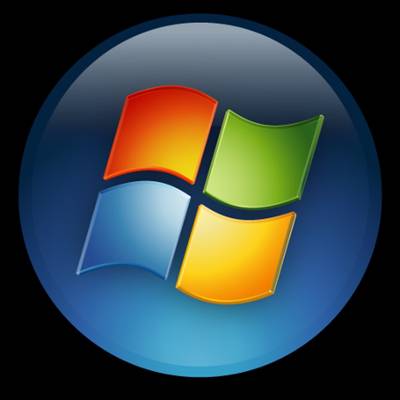Directive Blogs
 Have you ever been in a situation where you have a friend who wants to use your personal computer for who-knows-what? In cases like this, you would want them to use a guest account, so as not to put your personal files at risk. Here’s how you can set it up in all commonly used Windows operating systems.
Have you ever been in a situation where you have a friend who wants to use your personal computer for who-knows-what? In cases like this, you would want them to use a guest account, so as not to put your personal files at risk. Here’s how you can set it up in all commonly used Windows operating systems.
All good things must eventually come to an end, and that includes your business’ technology solutions. The end of a Windows operating system’s reign on the market is always an eventful time, as you have businesses that take proactive measures to ensure they don’t fall behind the times before the end of support date, and you have those who wait until the last minute and put their organizations at risk because of it.
Google Chromebooks run a streamlined version of the Chrome OS to offer users a relatively decent browsing experience, despite the device’s limitations. But what if Microsoft created a similar operating system? Well, they did just that with Windows 10 S, which is designed to be used with less processing power than the current operating system.
When you get a new device, you’re getting more than just the physical device and whatever software is currently installed on it. You’re also getting any updates and patches that the manufacturer and software developers release. However, many users neglect to incorporate these key improvements. Today, we’ll go over why updates and patches are so crucial.
 It’s been over two years since Microsoft officially cut the cord on Windows XP. As the most popular Windows operating system at the time, it was a huge blow to both businesses and consumers alike. Thankfully, a migration to Windows 10 isn’t nearly as difficult as one from XP. What lessons can be learned from Windows XP’s end of life event that can be applied to upgrading to Windows 10?
It’s been over two years since Microsoft officially cut the cord on Windows XP. As the most popular Windows operating system at the time, it was a huge blow to both businesses and consumers alike. Thankfully, a migration to Windows 10 isn’t nearly as difficult as one from XP. What lessons can be learned from Windows XP’s end of life event that can be applied to upgrading to Windows 10?
 Which database management system is running on your company’s server units? For end users, it’s not something that they put a whole lot of thought into. However, if you completely overlook your Microsoft SQL Server, you may end up running an expired version that puts your data at risk. Case in point, SQL Server 2005, which Microsoft recently ended support for.
Which database management system is running on your company’s server units? For end users, it’s not something that they put a whole lot of thought into. However, if you completely overlook your Microsoft SQL Server, you may end up running an expired version that puts your data at risk. Case in point, SQL Server 2005, which Microsoft recently ended support for.
 When it comes to technology, upgrading is part of the package. Despite this being a well-established fact, some business owners will delay upgrading for as long as possible, while others will upgrade as soon as the latest product is released. What’s behind a company’s motivation to upgrade or not? We can better understand this by looking at a study on why businesses upgrade their operating systems.
When it comes to technology, upgrading is part of the package. Despite this being a well-established fact, some business owners will delay upgrading for as long as possible, while others will upgrade as soon as the latest product is released. What’s behind a company’s motivation to upgrade or not? We can better understand this by looking at a study on why businesses upgrade their operating systems.
 Windows 10 is making its rounds in the business environment, which is hardly surprising. Microsoft is known for making great operating systems that are ideal for both consumer use and workplace productivity. Though Windows 10’s adoption rate has been somewhat slow, it’s expected to be on par, or even surpass, other Windows OSs in terms of sheer usability over the next few years.
Windows 10 is making its rounds in the business environment, which is hardly surprising. Microsoft is known for making great operating systems that are ideal for both consumer use and workplace productivity. Though Windows 10’s adoption rate has been somewhat slow, it’s expected to be on par, or even surpass, other Windows OSs in terms of sheer usability over the next few years.
 Last year, Microsoft pulled the plug on Windows XP’s support. Now, one year later, Windows Server 2003 is scheduled to meet its demise. If your servers are still running Windows Server 2003 as their operating system, it’s important to upgrade before the end of support date of July 14th. Otherwise, you could be running a server operating system without necessary patches and security updates.
Last year, Microsoft pulled the plug on Windows XP’s support. Now, one year later, Windows Server 2003 is scheduled to meet its demise. If your servers are still running Windows Server 2003 as their operating system, it’s important to upgrade before the end of support date of July 14th. Otherwise, you could be running a server operating system without necessary patches and security updates.
 Technology has come a long way since 2003. It seems like just yesterday that Microsoft dropped support for Windows XP, and in just a few short months, they’ll be dropping support for Windows Server 2003, as well. If your business is one of the many still utilizing this server operating system, you’ll want to make sure that you upgrade away from it before July 14th, 2015. Otherwise, you’ll be running without security patches or updates.
Technology has come a long way since 2003. It seems like just yesterday that Microsoft dropped support for Windows XP, and in just a few short months, they’ll be dropping support for Windows Server 2003, as well. If your business is one of the many still utilizing this server operating system, you’ll want to make sure that you upgrade away from it before July 14th, 2015. Otherwise, you’ll be running without security patches or updates.
 The busy business owner keeps sensitive work-related information stored on their mobile device. If he lost the device, it could have disastrous results, especially if the device were to fall into the hands of an experienced hacker or competitor. Just in case, it’s a best practice to always lock your mobile devices. How do you choose the Android lock feature which is right for your unique needs?
The busy business owner keeps sensitive work-related information stored on their mobile device. If he lost the device, it could have disastrous results, especially if the device were to fall into the hands of an experienced hacker or competitor. Just in case, it’s a best practice to always lock your mobile devices. How do you choose the Android lock feature which is right for your unique needs?
 Windows 10, the next big Microsoft’s Windows operating system, has a lot to live up to, and enterprises have had the chance to experiment with the technical preview for the past month. While the operating system will still be in development for the better part of next year, some professionals are forming opinions of what to expect from it. From the technical preview, what do businesses think of Windows 10 so far?
Windows 10, the next big Microsoft’s Windows operating system, has a lot to live up to, and enterprises have had the chance to experiment with the technical preview for the past month. While the operating system will still be in development for the better part of next year, some professionals are forming opinions of what to expect from it. From the technical preview, what do businesses think of Windows 10 so far?
 If you're still running your business or home PC on Windows XP, then it's vital that you upgrade to a newer OS. Yes, your decade-old Windows XP system may be working just fine, and therefore, you may not feel the urgency to upgrade, but you will feel the heat when Microsoft stops supporting its popular OS--in just a few short days!
If you're still running your business or home PC on Windows XP, then it's vital that you upgrade to a newer OS. Yes, your decade-old Windows XP system may be working just fine, and therefore, you may not feel the urgency to upgrade, but you will feel the heat when Microsoft stops supporting its popular OS--in just a few short days!
 If you haven't done it already, then on the very top of your 2014 to-do list should be upgrading from Windows XP. Microsoft has scheduled to end support for its popular decade-old OS on April 8, 2014, which is only a few short months away. Here are five tips that will help you with upgrading from Windows XP.
If you haven't done it already, then on the very top of your 2014 to-do list should be upgrading from Windows XP. Microsoft has scheduled to end support for its popular decade-old OS on April 8, 2014, which is only a few short months away. Here are five tips that will help you with upgrading from Windows XP.


